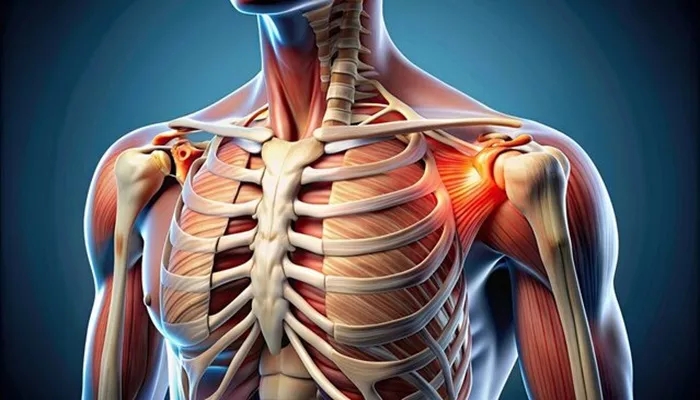Myocarditis is a condition characterized by inflammation of the myocardium, the muscular layer of the heart wall. This inflammation can significantly impair the heart’s ability to pump blood effectively, leading to various clinical symptoms and complications. Myocarditis can occur due to a variety of causes, including infections, autoimmune diseases, and exposure to certain drugs or toxins. Understanding myocarditis is crucial for timely diagnosis and treatment, as it can lead to serious health issues, including heart failure and sudden cardiac death.
What Causes Myocarditis?
Myocarditis can be triggered by infectious and non-infectious factors. The most common causes include:
Viral Infections: Many cases of myocarditis are associated with viral infections. Common viruses include adenovirus, parvovirus B19, and the viruses responsible for influenza and COVID-19. These viruses can directly invade heart tissue, causing inflammation.
Bacterial Infections: Certain bacterial infections can also lead to myocarditis. For example, bacteria such as Streptococcus and Staphylococcus can cause inflammation of the heart muscle.
Autoimmune Diseases: Conditions like lupus and rheumatoid arthritis can cause the immune system to attack the heart muscle, leading to myocarditis.
Toxins and Medications: Exposure to certain toxins, such as heavy metals, and some medications can induce myocarditis.
Chemotherapy drugs and some antibiotics have been implicated in this condition.
Idiopathic Causes: In many cases, the exact cause of myocarditis remains unknown, which is referred to as idiopathic myocarditis.
SEE ALSO: Can You See Myocarditis on Chest X Ray
Symptoms of Myocarditis
The symptoms of myocarditis can vary widely from person to person. Some individuals may experience mild symptoms, while others may have severe manifestations. Common symptoms include:
Chest Pain: Patients may report a feeling of pressure, tightness, or squeezing in the chest. This pain can occur during physical activity or at rest.
Shortness of Breath: Difficulty breathing can occur, especially during exertion. In severe cases, individuals may experience shortness of breath even at rest.
Fatigue: Many patients with myocarditis feel unusually tired and may find physical activity increasingly difficult.
Arrhythmias: Irregular heartbeats can occur due to inflammation affecting the heart’s electrical system. Patients may feel palpitations or a racing heart.
Swelling: Fluid retention may lead to swelling in the legs, ankles, and feet.
Flu-like Symptoms: Some patients may experience symptoms similar to those of a viral infection, including fever, body aches, and sore throat.
Lightheadedness or Fainting: In severe cases, reduced blood flow can lead to lightheadedness or fainting spells.
Pain Location in Myocarditis
Chest pain associated with myocarditis can be confusing, as it may mimic the pain experienced during a heart attack. The pain is often described as a dull or sharp sensation that may radiate to the neck, back, or shoulders. Unlike pain from a heart attack, which is typically severe and crushing, myocarditis-related chest pain can vary in intensity. It may worsen with movement, coughing, or deep breathing, and may improve when sitting up or leaning forward.
Diagnosis of Myocarditis
Diagnosing myocarditis can be challenging due to the variability in symptoms and the overlap with other cardiac conditions. A systematic approach is essential for accurate diagnosis. Key diagnostic methods include:
Medical History and Physical Examination: A healthcare provider will begin by taking a detailed medical history and performing a physical examination. They will listen to the heart for abnormal sounds and check for signs of fluid retention.
Electrocardiogram (ECG): An ECG records the electrical activity of the heart. It can help identify irregular heart rhythms and other abnormalities associated with myocarditis.
Blood Tests: Blood tests can measure cardiac biomarkers that indicate heart muscle damage and check for signs of infection or inflammation.
Imaging Studies: Imaging techniques such as echocardiography, cardiac magnetic resonance imaging (MRI), and chest X-rays can provide detailed information about heart structure and function. An echocardiogram can assess heart size and blood flow, while a cardiac MRI can visualize inflammation and scarring in the heart muscle.
Endomyocardial Biopsy: In some cases, a biopsy of the heart muscle may be necessary to confirm the diagnosis. This procedure involves taking a small sample of heart tissue for analysis.
Treatment Options for Myocarditis
The treatment of myocarditis depends on the underlying cause, severity of symptoms, and the presence of complications. In many cases, myocarditis resolves on its own without specific treatment.
However, more severe cases may require medical intervention.
Treatment options include:
Medications: Various medications may be prescribed to manage symptoms and support heart function. These may include:
Heart Medications: Drugs to manage heart failure symptoms and reduce the risk of blood clots.
Corticosteroids: These anti-inflammatory medications may be used to suppress the immune response in cases of autoimmune-related myocarditis.
Diuretics: These help reduce fluid buildup in the body, relieving symptoms of heart failure.
Beta-Blockers: These medications can help lower heart rate and reduce blood pressure.
Lifestyle Modifications: Patients are often advised to rest and avoid strenuous physical activity during recovery. A heart-healthy diet and regular follow-up with a healthcare provider are essential.
Advanced Therapies: In severe cases, more advanced treatments may be necessary. These can include:
Ventricular Assist Devices (VADs): Mechanical pumps that help the heart pump blood.
Extracorporeal Membrane Oxygenation (ECMO): A machine that takes over the heart’s pumping function temporarily.
Heart Transplant: In cases of severe heart failure where other treatments have failed, a heart transplant may be necessary.
Conclusion
Myocarditis is a complex condition that can significantly impact heart health. Understanding its causes, symptoms, and treatment options is essential for timely diagnosis and effective management. While many cases resolve spontaneously, severe myocarditis can lead to serious complications. Therefore, individuals experiencing symptoms such as chest pain, shortness of breath, or irregular heartbeats should seek medical attention promptly.

